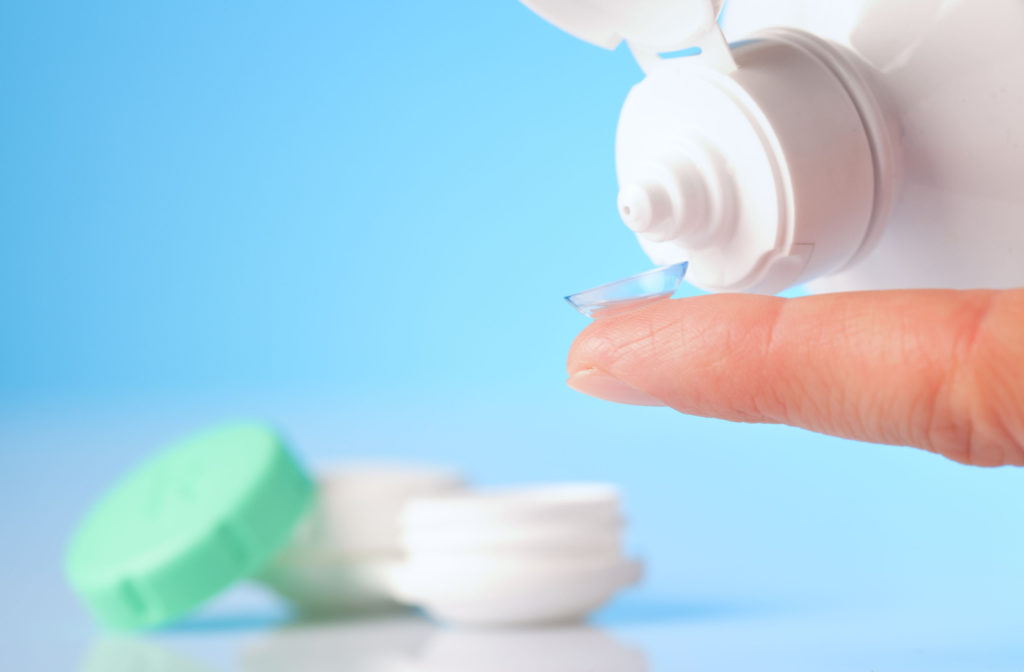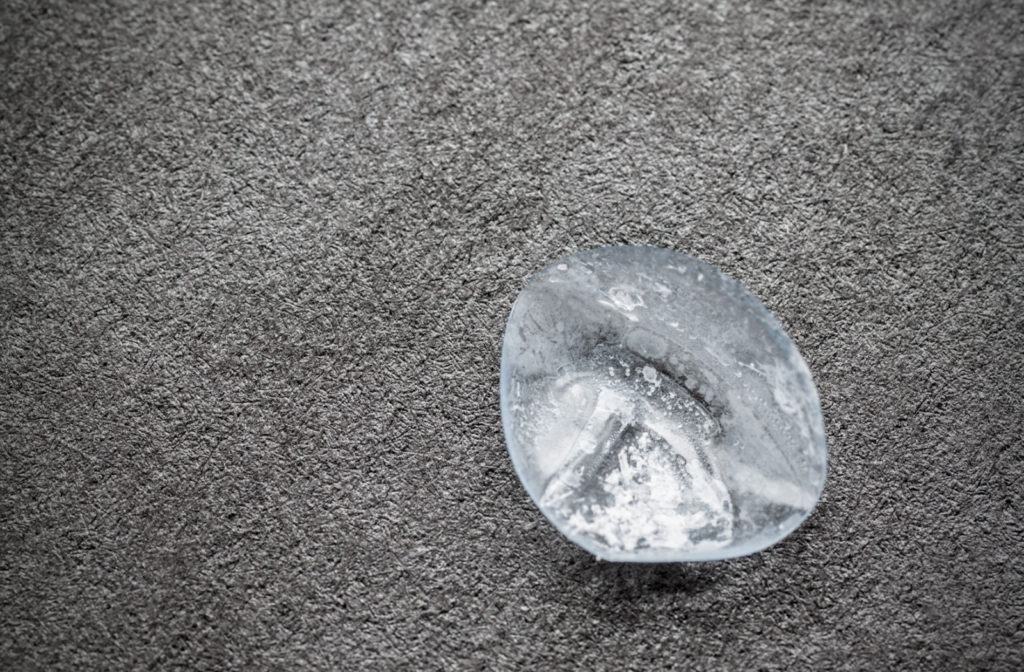Contact lenses are an amazing alternative to traditional eyeglasses, letting you see the world with clarity without any visual obstructions. They’re convenient, reliable, and helpful all around. However, they do require proper care, and sometimes, they can dry out if you forget to maintain them. What should you do if your contacts dry out?
First, inspect the lenses for any tears, splits, or visible damage. If there’s anything unusual, dispose of the lens. If the lens is still intact, soak it in a special solution designed for contacts for at least ten minutes; this may help rehydrate the lens. However, it’s generally recommended to replace your contacts if they dry out so you don’t put yourself at risk of damaging your eyes and vision.
What Happens if Your Contact Lens Dries Out?
For your contacts to do their job, they need to stay flexible and smooth. This is why they’re stored in a solution; it helps keep the lens properly lubricated and soft. But what happens if you forget to refill the solution or the lens dries out for some other reason?
When a contact lens dries out, it starts to become brittle. It’s more prone to tears, breaks, and cracks. When you try to put this damaged lens in your eye, you’re much more likely to experience irritation and discomfort.
This is why it’s essential to properly care for your contact lenses.
Is It Safe to Wear Dried Out Contacts?
If your contact lenses have dried out, you should dispose of them. When they’ve dried out, they may begin to warp from their original shape. This can lead to tears, breaks, and other defects.
When you put a damaged lens in your eye, it can scratch the delicate surface of your cornea. And along with this, any accumulated debris, like dust or oils, can further irritate your eyes. Wearing damaged contact lenses can often lead to:
- Increased risk of eye infections, as cracks in the lens can harbor bacteria.
- Possible abrasions or scratches on the cornea, which may cause pain and lead to more serious eye complications.
- Blurred vision or visual disturbances, since a misshapen lens won’t correct your eyesight properly.
- Eye inflammation, especially if any debris is trapped by the lens.
- General discomfort, as friction between the surface of the eye and the lens increases.
If you’ve accidentally worn a dried-out contact lens and noticed discomfort, it’s completely natural. So what do you do if your contact lenses dry out?
Can You Rehydrate a Contact Lens?
While it can be possible to rehydrate a contact lens, it isn’t as simple as just adding a saline solution. Because a contact lens sits in the tear film of your eye, a complex mix of more than just water, you need to be careful.
First, inspect the lens. Take your time and be thorough. Look for any cracks or tears, or any visible damage whatsoever. If you notice anything unusual with the lens, dispose of it—it isn’t fixable at this point.
If there’s no damage, immediately soak the lens in a multi-purpose solution that’s strictly meant for contact lenses. After at least ten minutes of soaking, inspect the lens again; if it still looks dry or damaged, don’t put it back in your eye. Instead, dispose of the lens and replace it with a new one.
While it may seem more convenient to soak and re-use a dried-out contact lens, if you have another pair of contacts that aren’t dried out, it’s generally recommended to use them instead of a pair that could potentially damage your eyes. Your vision is precious, so don’t put it at risk.

Tips for Caring for Your Contact Lenses
To avoid the discomfort that a damaged contact lens can cause, carefully maintaining your contacts is key. It can help to:
- Always wash your hands thoroughly with soap and water before handling your contact lenses to minimize the risk of infection or irritation.
- Use only the contact lens solution recommended by your optometrist to clean and store your lenses so they remain hygienic and hydrated.
- Never use tap water to rinse or store contact lenses.
- Take care to follow the lens care instructions provided by your lens manufacturer and optometrist to maintain their quality and safety.
- Replace your contact lenses as recommended by the manufacturer or your eye care professional to prevent wearing out your lenses or exposing your eyes to potential harm.
- Never use an out-of-date contact lens, case, or solution.
- Never sleep in contact lenses unless they are specifically designed for overnight wear, as doing so can increase the risk of eye infections.
This way, you can keep your lenses safe and hygienic, which can do wonders for your vision and eye health.
Replacing Your Contact Lenses
If you need to replace your contact lenses, contact our team at Golden Hills Optometry. We can help you find the right pair of lenses for your lifestyle and give you up-to-date advice on keeping your lenses safe. Your eyes are a precious thing and deserve proper care, so book an appointment with us today!



